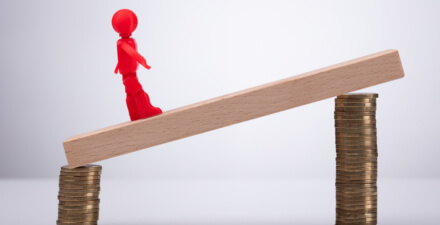Brad DeLong: Worthy reads on equitable growth, October 26–November 12, 2019
Worthy reads from Equitable Growth:
- Be sure to apply by January 26 for Equitable Growth’s 2020 Request for Proposals: “Equitable Growth considers proposals that investigate the link between economic inequality and individuals’ economic outcomes and well-being, poverty and mobility from poverty, the macroeconomy, and sustainability. We are particularly interested in dimensions of inequality, including race, ethnicity, gender, and place, as well as the ways in which public polices affect the relationship between inequality and growth.”
- The Economist quotes Equitable Growth’s Kate Bahn in “Belligerent unions are a sign of economic health.” The article says that when “economists argue that unions impose economic costs, they typically assume that markets are competitive. Across much of the American economy that is not always the case. Sometimes one or a few big employers dominate local labour markets, and can thus impose below-market wages on vulnerable workers, a condition economists call ‘monopsony.’ In recent testimony in a congressional hearing on antitrust issues, Kate Bahn of the Washington Centre for Equitable Growth, a think-tank, noted that though wages in manufacturing industries are close to the level one would expect in competitive markets, those in some others, like healthcare, are not. For workers frustrated by stagnant pay, a work stoppage may be the only way to determine if an employer is constrained by competitive markets or abusing its market power.”
- An excellent podcast on Heather Boushey’s new book, Unbound: How Inequality Constricts Our Economy and What We Can Do About It, featuring her and Matthew Yglesias at Vox.
Worthy reads not from Equitable Growth:
- The U.S. economy now has a manufacturing recession. Paul Krugman correctly explains why. Read his “Manufacturing Ain’t Great Again. Why?,” in which he writes: “Many of Trump’s economic promises were obvious nonsense. The hollowing out of coal country reflected new technologies, like mountaintop removal, which require few workers, plus competition from other energy sources, especially natural gas but increasingly wind and solar power. Coal jobs aren’t coming back, no matter how dirty Trump lets the air get. And farmers, who export a large fraction of what they grow, should have realized that Trump’s protectionism and the inevitable retaliation from other countries would have a devastating effect on their incomes.”
- The marketplace can work well when it is competitive. I am still waiting to hear the argument made coherently that it works well when it is characterized by monopolies, monopoly platforms, or cozy oligopolies—and I think I will wait a long time. Read Thomas Philippon, “The U.S. Only Pretends to Have Free Markets,” in which he writes: “From plane tickets to cellphone bills, monopoly power costs American consumers billions of dollars a year: When I arrived in the United States from France in 1999, I felt like I was entering the land of free markets. Nearly everything—from laptops to internet service to plane tickets—was cheaper here than in Europe. Twenty years later, this is no longer the case. Internet service, cellphone plans, and plane tickets are now much cheaper in Europe and Asia than in the United States, and the price differences are staggering. In 2018, according to data gathered by the comparison site Cable, the average monthly cost of a broadband internet connection was $29 in Italy, $31 in France, $32 in South Korea, and $37 in Germany and Japan. The same connection cost $68 in the United States, putting the country on par with Madagascar, Honduras, and Swaziland. American households spend about $100 a month on cellphone services, the Consumer Expenditure Survey from the U.S. Bureau of Labor Statistics indicates. Households in France and Germany pay less than half of that … None of this has happened by chance. In 1999, the United States had free and competitive markets in many industries that, in Europe, were dominated by oligopolies. Today the opposite is true.”
- I have been quite surprised to discover that the 2019 Economics Nobel laureates have not received enough praise since the announcement. So, go read Oriana Bandiera, “Alleviating Poverty with Experimental Research: The 2019 Nobel Laureates,” in which she writes: “Development economics had no Ph.D. courses, no group at the NBER or CEPR, and hardly any publications in top journals until the early 2000s. What this year’s Nobel laureates did was to build the infrastructure to make fieldwork widely accessible and the methods to make the analysis credible. What they did, and what they were awarded for, is to put development economics back on center stage … What is unusual and relevant is that the nomination explicitly mentions that the winners lead a group effort … What is even more unusual and extremely relevant is that the nomination emphasizes the practical applications of their methods, which ‘have dramatically improved our ability to fight poverty in practice.’ This is a monumental change, and one that the profession should welcome for the obvious reason that making the world a better place is a desirable goal.”






